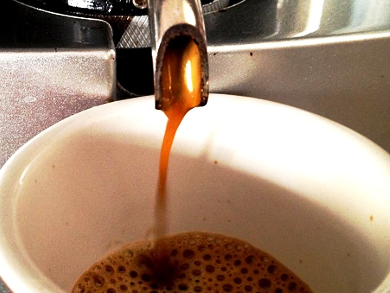Francesc A. Esteve-Turrillas and colleagues, University of Valencia, Burjassot, Spain, used a hard cap automatic espresso machine in combination with liquid chromatography (LC) with molecular fluorescence detection to determine polycyclic aromatic hydrocarbons (PAHs) from contaminated soils and sediments. They demonstrate appropriate extraction efficiencies and quantitative results.
For a test, the team used sterile soil, where defined quantities of PAKs, including naphthalene, benzpyrene, fluorene, and other common pollutants, were added. PAHs were extracted from 5.0 g of soil, previously homogenized, freeze-dried, and sieved to 250 μm, with 50 mL of 40% (v/v) acetonitrile in water at a temperature of 72 ± 3 °C. The extraction time was 11 s. Lower amounts of organic solvent were needed for sample preparation than for conventional experiments. The obtained limit of detection for the evaluated PAHs was from 1–38 μg kg–1.
According to the researchers using hard cap espresso machines in analytical laboratories as low cost extraction units for the extraction of solid samples has great potential.
- Hard Cap Espresso Machines in Analytical Chemistry: What Else?,
Sergio Armenta, Miguel de la Guardia, Francesc A. Esteve-Turrillas,
Anal. Chem. 2016, 88 (12), 6570–6576.
DOI: 10.1021/acs.analchem.6b01400




